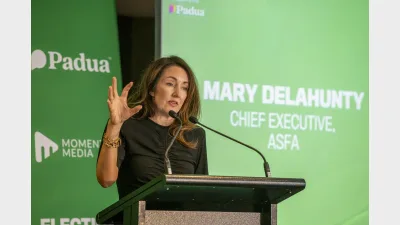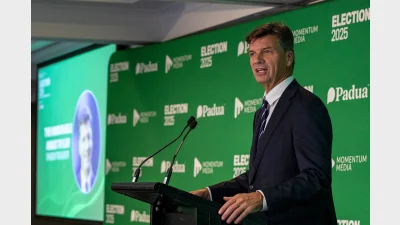ETF/ETP industry to pass $2 trillion in 2012


Global assets under management in exchange-traded funds (ETFs) will pass US$2 trillion by the end of 2012, while combined ETF and exchange-traded products (ETPs) assets will hit US$2 trillion in the next 12 months, according to BlackRock.
This expansion would be driven by increases in the number and types of equity, fixed income, commodities and other indices covered, according to BlackRock’s global head of ETF research and implementation strategy Deborah Fuhr.
An increase in fund platforms embracing ETFs, increased marketing by online brokers, greater involvement by fee-based advisers, more exchanges adopting ETFs, and regulatory changes in several markets allowing larger allocations to ETFs would also boost the industry, Fuhr said.
BlackRock’s Global ETF research and implementation strategy team predicted a 20-30 per cent annual increase over the next three years in the global ETF/ETP industry, which at 31 December 2010 had 3,503 products and US$1.482 trillion from 168 providers on 50 exchanges around the world.
Many investors turned to ETFs after the global financial crisis due to a desire for liquidity and a shift in risk appetite, Fuhr said.
And despite growth in alternative asset class ETFs, investors will continue to prefer ETFs based on broad-market indices that serve as core holdings, she said.
“With today’s increased market volatility, no single sector, style, or stock consistently outperforms its peers. Having core holdings invested in broad-market indices not only helps reduce volatility but can also achieve competitive returns for the overall portfolio.”
ETFs have changed the way both institutional and retail investors construct investment portfolios, and ETFs would likely continue to be one of the preferred investment vehicles for low-cost beta exposure across both retail and institutional markets, Fuhr said.
Recommended for you
Aware Super has made a $1.6 billion investment in a 99-hectare industrial precinct in Melbourne’s North which, the fund clarified, also houses the nation’s first privately funded open-access intermodal freight terminal.
ASFA has affirmed its commitment to safeguarding Australia’s retirement savings as cyber activity becomes an increasing challenge for the financial services sector.
The shadow treasurer is not happy with the performance of some within the super sector, telling an event in Sydney on Thursday that some funds are obsessed with funds under management, above all else.
As the Australian financial landscape faces increasing scrutiny from regulators, superannuation fund leaders are doubling down on their support for private markets, arguing these investments are not just necessary but critical for long-term financial stability.












